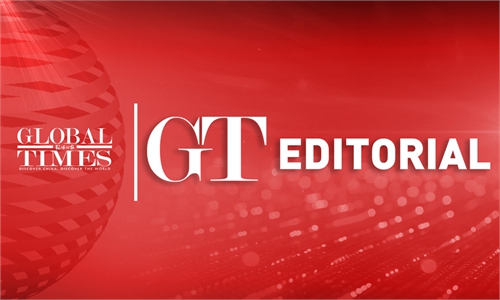The world looks forward to the new role of China’s Hong Kong as ‘capital of mediation’: Global Times editorial

Illustration: Liu Rui/GT
On May 30, the signing ceremony of the Convention on the Establishment of The International Organization for Mediation will take place in Hong Kong, China. As the world's first intergovernmental international legal organization dedicated to resolving international disputes through mediation, the establishment of the International Organization for Mediation (IOMed) marks a milestone in global governance and highlights the value of resolving conflicts in an "amicable way." Meanwhile, Hong Kong is set to gain a new identity as the global "capital of mediation." The "pearl of the orient" is shining anew under the "one country, two systems" framework, drawing global attention.
Mediation is one of the key dispute settlement methods outlined in the United Nations (UN) Charter. The establishment of the IOMed will fill a critical gap in mechanisms focused on mediation-based dispute resolution. Co-initiated by 19 countries, including China, the organization represents a contribution from developing countries to the international rule of law. Unlike zero-sum or adversarial approaches, mediation offers disputing parties greater flexibility, allowing room for compromise and reconciliation. It also has "the advantages of greater flexibility, convenience, lower costs and more effective implementation," making it particularly valuable for small and medium-sized countries to participate fairly. Grounded in the purposes and principles of the UN Charter, the IOMed complements existing institutions and dispute resolution mechanisms in a constructive manner.
The founding of the IOMed embodies the true spirit of multilateralism. On the day of the signing ceremony, high-level representatives from nearly 60 countries across Asia, Africa, Latin America, and Europe, as well as around 20 international organizations including the UN, will attend the signing ceremony for the Convention. The strong interest and enthusiasm shown by the international community underscores IOMed's relevance and importance in today's world. The idea that everything can be resolved through consultation resonates with the current global pursuit of peace and development and also reflects the shared aspiration for a more just and equitable international order.
China is one of the main initiators and driving forces behind the establishment of the IOMed. The concept of the IOMed embodies the ancient Chinese philosophy of Hehe (harmony and unity), while also reflecting the rule-of-law spirit grounded in international law. It emphasizes resolving conflicts through dialogue and consultation, and pursuing harmonious coexistence. In recent years, China's successful practices in international mediation have further proven the viability and deep potential of this path. From facilitating the handshake between Saudi Arabia and Iran in Beijing, to promoting the signing of the "Beijing Declaration" among 14 Palestinian factions despite decades of internal rifts, mediating a ceasefire agreement among various parties in Myanmar in Kunming, and consistently contributing to the Afghan peace process, guided by the Eastern wisdom of resolving conflicts in an "amicable way," China has helped to resolve longstanding grievances through sincere dialogue.
Mediation as a means of dispute resolution has become a vivid example of China's diplomatic approach to building a community with a shared future for mankind.
On May 27, Hong Kong SAR Chief Executive John Lee told the media that the IOMed is a high-level international organization, on par with the International Court of Justice and the Permanent Court of Arbitration in The Hague. The IOMed's establishment demonstrates China's commitment and efforts to uphold an international order based on international law, while also opening a new chapter for the peaceful resolution of global disputes. This marks the first time an intergovernmental international organization is being headquartered in Hong Kong, showcasing the empowerment brought to the city under the principle of "one country, two systems." Today, Hong Kong's role as a "super-connector" between East and West in both economic and cultural terms is more solid. The sense of security and stability brought about by the implementation of the National Security Law for Hong Kong is now transforming into an important competitive advantage that supports the city's sustained prosperity.
The establishment of the IOMed highlights China and Global South countries' commitment to global governance, and will inject fresh momentum into world peace and cooperation. At the same time, the IOMed focuses on resolving disputes through mediation, responding to the shared aspirations of all countries for peace, stability, and development.
A spokesperson from China's Ministry of Foreign Affairs said China welcomes support and participation from more countries in creating the IOMed, to better enable it to coordinate with existing international disputes settlement mechanisms to make each other more effective, and provide more options and pathways to resolve international disputes through efficient and peaceful means, and better safeguard international fairness and justice.
The signing ceremony, to be held at the Hong Kong Convention and Exhibition Centre will not only witness the birth of a new international institution but will also witness the opening of the door to an equal, orderly, and multipolar world by a civilization key to building a community with a shared future for mankind.

